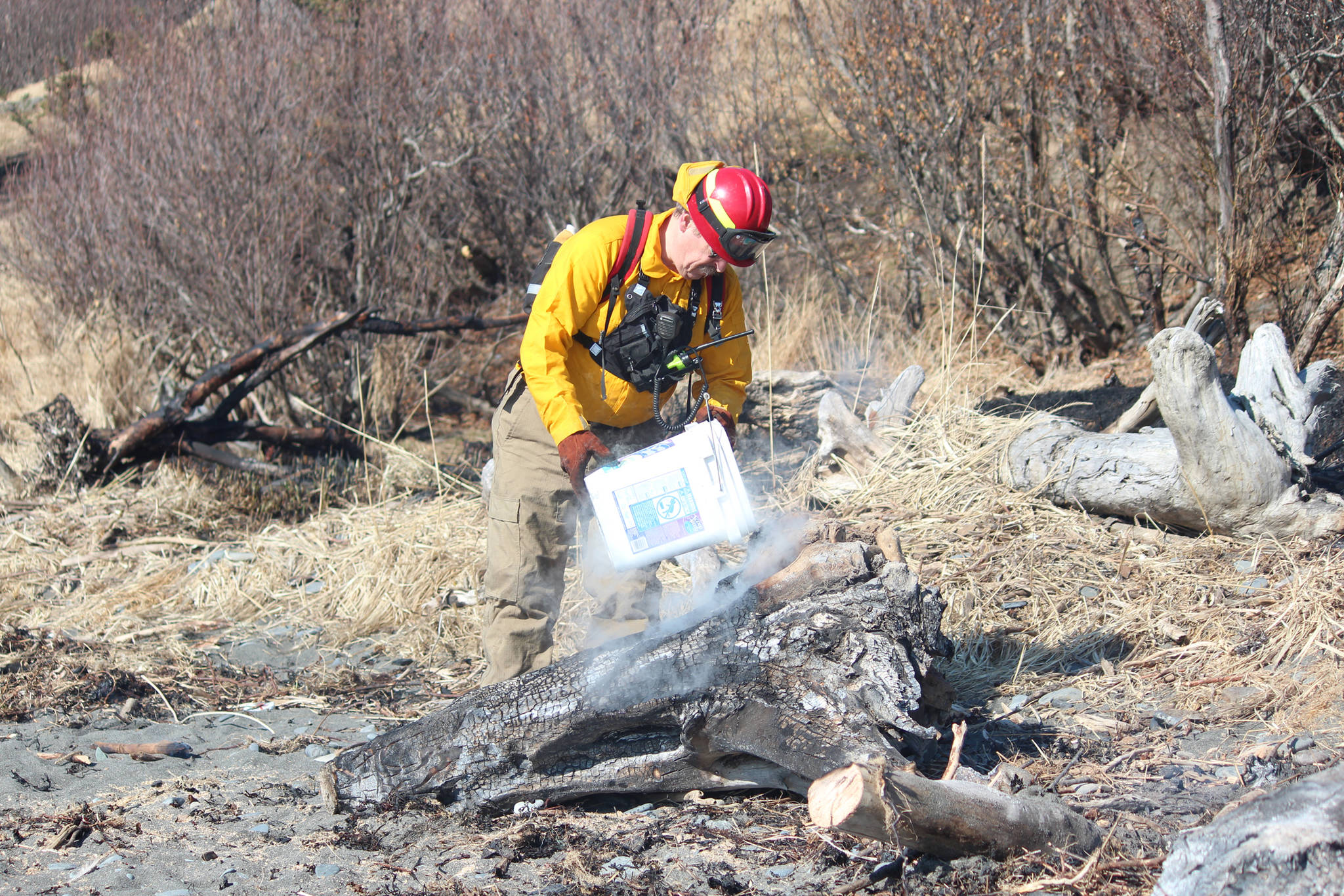A campfire that got out of control and began climbing the bluff of Bishop’s Beach last Friday was a stark reminder of the importance of responsible burning practices as Homer heads into spring and summer.
Homer resident Jody Weinfurter and her mother, Lucy, were taking a walk down Bishop’s Beach Friday afternoon when they passed an abandoned campfire that was still going. Lucy said she heard a noise and turned around to see the fire escaping up the beach and bluff.
The Weinfurters, along with several other good Samaritans who were passing by at the time, ran up to houses on top of the bluff to get a bucket and other materials. They used water from the bay and a chainsaw to cut up the logs to subdue the blaze while the Homer Volunteer Fire Department was on its way. Lucy had called 911.
Upon arrival, firefighters continued putting out the hot embers, cooling down logs, and dousing a second unattended campfire close to the first one.
The city of Homer has its own permit required all year long for those planning to burn within city limits. Those can be picked up at the Homer Volunteer Fire Department, said Chief Terry Kadel. Additionally, general burn permits have been required through the Alaska Division of Forestry since April 1. They are required by law through Aug. 31.
According to the general burn permit rules, residents don’t need a permit for campfires or “warming fires,” or fires that are not more than 3 feet in diameter. However, the division suggests clearing the area around your fire to reduce the change of it spreading.
Public areas of Bishop’s Beach are closed to camping. According to city code, camping on city property is allowed only where designated, such as at Karen Hornaday Park, Mariner Park and on the Spit. On Sunday afternooon, April 1, and Monday morning, April 2, Homer Police received reports of illegal camping and unattended campfires on the beach. About 11:30 p.m. that night, police patrolled the beach and found several people camping illegally. Police warned the people not to camp on the beach.
Kadel also warned that fires should never be left unattended, especially during this fragile time after ice out but before what’s referred to as green up. In the spring and summer, before enough rain falls to saturate the earth, dry grasses, or fuels, are left exposed when snow melts.
“We like to make citizens aware … residents of Homer and visitors of Homer, make them aware that this time of year the grasses are really dry,” Kadel said. “Nothing’s greened up yet, so things are really flammable.”
Kadel said people should only start campfires in a spot designated for that, with a ring or metal grate.
“When you have a campfire and you put it out, and the embers kind of go down and you cover it with a little sand, then the wind comes, heats things up,” he said. “… This is a really vulnerable time.”
Winds have been steadily strong lately, Kadel said, especially on the beaches. Combining that with the dry state of vegetation increases the risk of a fire.
You can find more information about general burn permits, and apply for one, on the Division of Forestry’s website at dnr.alaska.gov/burn.
Reach Megan Pacer at mpacer@homernews.com.


